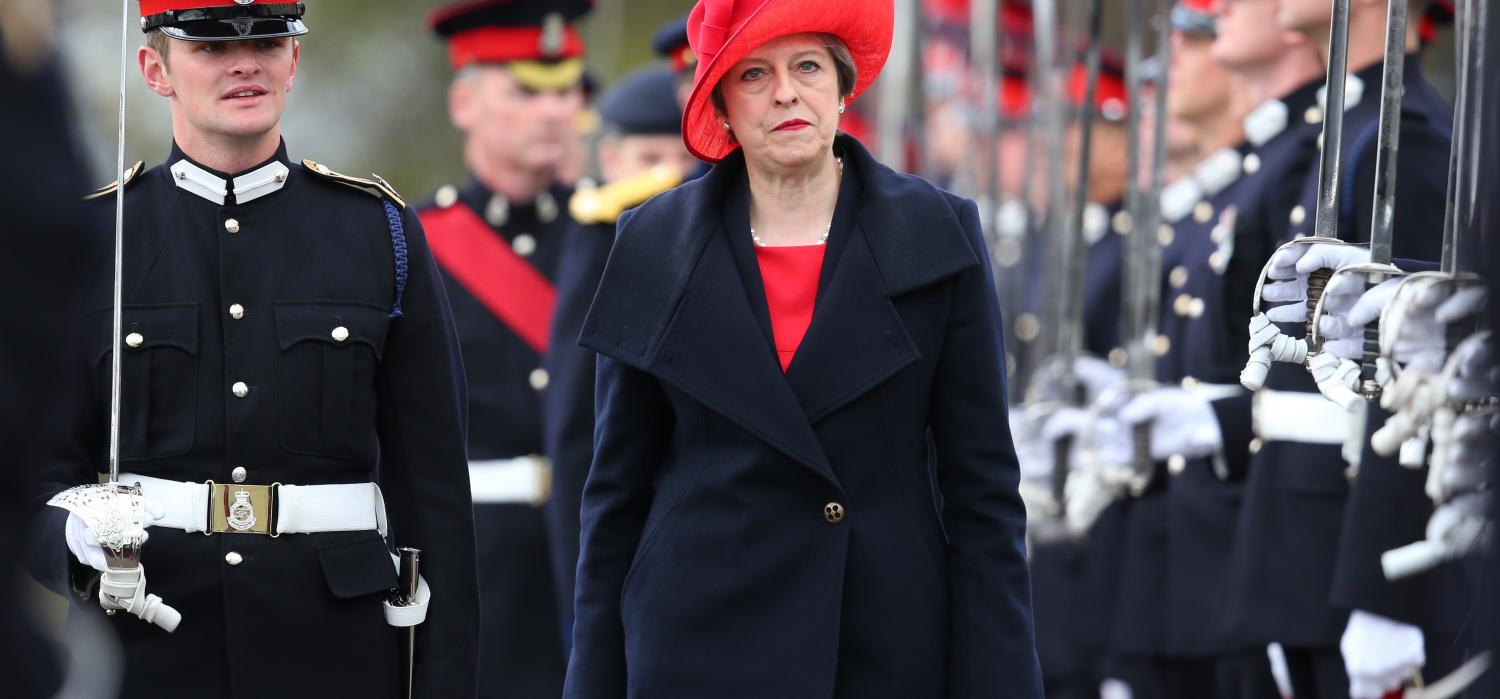After promising repeatedly there would be no early election, Prime Minister Theresa May has called a snap poll for 8 June, ostensibly to secure an electoral endorsement for the UK's Brexit negotiating position. May argues she needs the clear backing of British voters to stop other parties frustrating the Government's negotiations. This is somewhat spurious given that her recent triggering of Article 50 enjoyed overwhelming support in the Parliament, including from Labour. So, what are the real reasons?
Over Easter, several opinion polls revealed the Tories have a stunning 20 to 21-point lead over Labour. May's chief campaign strategist, Australian Lynton Crosby, is reported to have told May there could be no better climate in which to call an election. Labour is divided, unpopular, and suffering under the poor leadership of Jeremy Corbyn. The anti-immigration, anti-EU UKIP is also in trouble, having chosen an accident-prone Paul Nuttall to replace Nigel Farage.
Despite their ascendancy in the polls the Tories have their own problems. Dozens of Conservative MPs are under investigation over their 2015 electoral expenses, a nagging internal worry and distraction for the Government. May's inner circle has also argued she needs a 'mandate in her own right' to stand up to those on the right wing of her party who have been undermining her on a range of policy fronts. These Tory 'troglodytes' have been pushing May towards a 'hard Brexit' she believes would not be good for Britain.
Elected leader following David Cameron's post-referendum resignation, Theresa May was persuaded that she could only achieve both party and policy discipline if she won a strong endorsement from the British people for her leadership. Opinion polls point to her securing a massive majority, perhaps up to 100 seats. May cannot, at this stage, publicly talk about the need for a softer Brexit, but if her leadership is cemented and her party strengthened by a significant majority, she will be in a better position at home and abroad, as well as within her own party, to get the best deal she can.
There are other factors. If the government had gone on to serve its full term until 2020, the most difficult phase of the Brexit negotiations would have occurred in the immediate lead-up to the election. The political perils of either being seen to be weak or being forced to make unpalatable decisions when she was most electorally vulnerable no doubt influenced May's calculations.
The benefits of Brexit have been massively oversold and wise heads within the government know that grim and embarrassing news lies ahead in the negotiations, with the EU considered to have the upper hand. An early election buys Theresa May time and creates the space in which to recover from an unpalatable Brexit outcome. A big election win now would also put the government in a stronger position later in dealing with the pro-EU Scottish Nationalists who have been pressing for a second independence referendum.
Meanwhile, the hapless Corbyn is committing political suicide. He has said many times that Labour would welcome an election at 'any time' so that British voters could have a real choice on policies such as NHS funding. He has now voted in Parliament in support of an election that will end his leadership and see more Labour seats lost.
Labour does not want to be torn in different directions over Brexit by being seen to resist the will of the people as expressed in the referendum, or to stall an election designed to deal more effectively with its implementation. In Labour's working class regional areas in the Midlands and north of England, there was strong voter support for leaving the EU. However, in London, also a Labour stronghold, there was 70% backing for remaining within the EU – Labour must thus walk a tightrope on Brexit.
Disastrously, Corbyn lacks the support of a vast majority of his own MPs, yet remains leader because of changes to the Party voting system that gave the biggest say in choosing a leader to a combined vote of unions and party members, rather than Labour MPs. May's snap election prevents frantic efforts by Labour moderates to replace Corbyn in time to rebuild before the next election. The 8 June poll has locked Corbyn into the leadership at a time when Labour is at its lowest ebb, even in historical terms.
Moderates in the Labour Party have been trying to get a major union to switch from Corbyn and back someone electable. To this end we have recently seen a bitter leadership contest within 'Unite', the biggest pro-Corbyn union. Labour's problem is that its moderates have not yet found a standard bearer to unite around. Labour realists know they will need to be 'nuked' electorally in order to rebuild later. This will probably mean they will be forced to languish in Opposition for another two terms.
Meanwhile, the pro-EU Liberal Democrats, almost wiped out electorally two years ago, could make something of a comeback in the south of England, where anti-Brexit sentiment runs high. Without a Labour alternative, they may pick up a few seats.
The election on 8 June will not be all plain sailing for May, given her previous adamant opposition to a snap poll. There is public cynicism and clear voter fatigue following a general election, a referendum and now a third nationwide vote, all held within two years. But the auguries could not be better for May to smash a divided Labour and put Tory troglodytes back in their cave.

